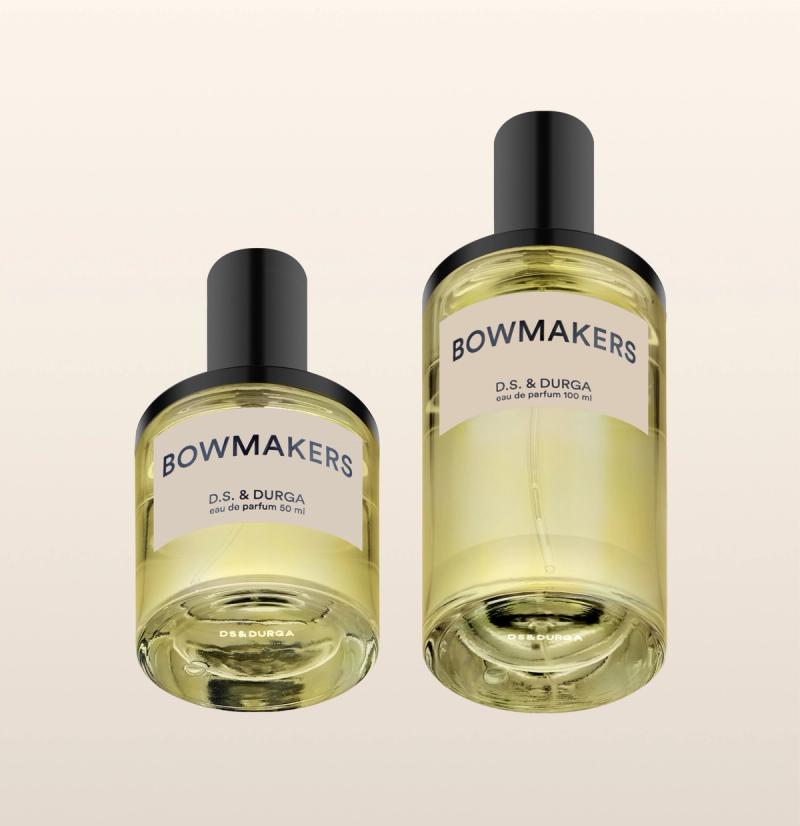Bowmakers
Perfume
Afterpay Available
Amid the transcendental woods of the 1800s, craftsmen from the Massachusetts Bay Colony built violins and bows. Old growth mahogany, burled maple shavings, amber pine rosin, aged walnut and unique secret varnishes.
Top Notes
- violin varnish
- mahogany
- outdoors accord
Heart Notes
- amber pine rosin
- maplewood
- cypress
Base Notes
- spiced tree resin
- cedar
- moss
Afterpay available on U.S. orders $50+
Afterpay available on U.S. orders $50+


Something magic lurks in the New England woods. They have been the stomping ground of natives, Vikings, poets, hermits, and dreamers for centuries.
Many of our great dramas center upon the forest. For Thoreau and Emerson, it was the Massachusetts woods. They extend from the outskirts of Boston to the wilderness of Western MA. All that is civilized peters out as one goes beyond the pale of University life. The great thinkers of our early nation had their muse right beside them.
Wooded areas represent that which lies just beyond our door but is secret and hidden, both scary and inviting. Emerson’s musings are peppered with the Massachusetts forest, and Thoreau conducted his great experiment right in them.
New England is characterized by a juxtaposition of the quaint and the grand. Like the lands of New England’s ancestors (English, Irish, Scottish), the mountains are not gigantic, but they are majestic. There are no Himalayas, Rockies, great lakes, deep trenches. Yet entire folk histories inhabit the cracks and crevices of the land. Caves are gateways to lairs of sorcerers. Valleys are watched over by protecting gods. The scale may be quaint, but the lands implied beyond are infinite.
Emerson has all he needs in the country lands around him. Magic is not something that lays far off in a distant realm.
The seemingly mundane space between trees holds more if one cares to look there. This magic pervades all that he writes. The artist jumps in the river of creation. He or she mimics the Creator and freely follows inspiration. All around us are glimpses.
Small pieces of land–yards, thickets, gardens, rooftops–where we are reminded of the greater world beyond the everyday. We do not need to travel to the wilderness to feel the endless space inside our minds.
The magic of the Massachusetts forest in the pioneer valley gave America something tangible as well–wood for among other things, musical instruments. Until the early 19th century, our young nation naturally relied upon imports for many items, including instruments. Even the music we made was influenced by Europe. All that began to change in the violin shops of the Pioneer valley. In them our first American instruments were created. Were they the tools we needed to go on and create our own lexicon in music? Of course they were just a part of it. But I love to think that the distilled magic of our maple, oak, pine, and rosin went to open up the minds of American musicians. Over the course of the next couple hundred years, Americans were making world-class music. Perhaps our greatest gifts: jazz, blues, country, folk, rock’n’roll, hip hop, and some of the most forward thinking classical music in the 20th century.
Bowmakers recalls the opening of a violin case–it is a woody scent.
There is the warm shellac of rosin and the luxuriance of mahogany and burled maple. The cold snap of birch in the whistling winter wind floats above the heart. The forest floor, slightly damp and blackened, pads out the bass (ha!) of the fragrance. Some will view it as masculine. It is rich and forward, but could be worn by anyone.-D.S.
Ingredients

Alcohol Denat., Fragrance (Parfum), Water (Aqua), Benzyl Benzoate, Cinnamyl Alcohol, Citral, Evernia Prunastri (Oakmoss) Extract, Geraniol, Limonene, Linalool

